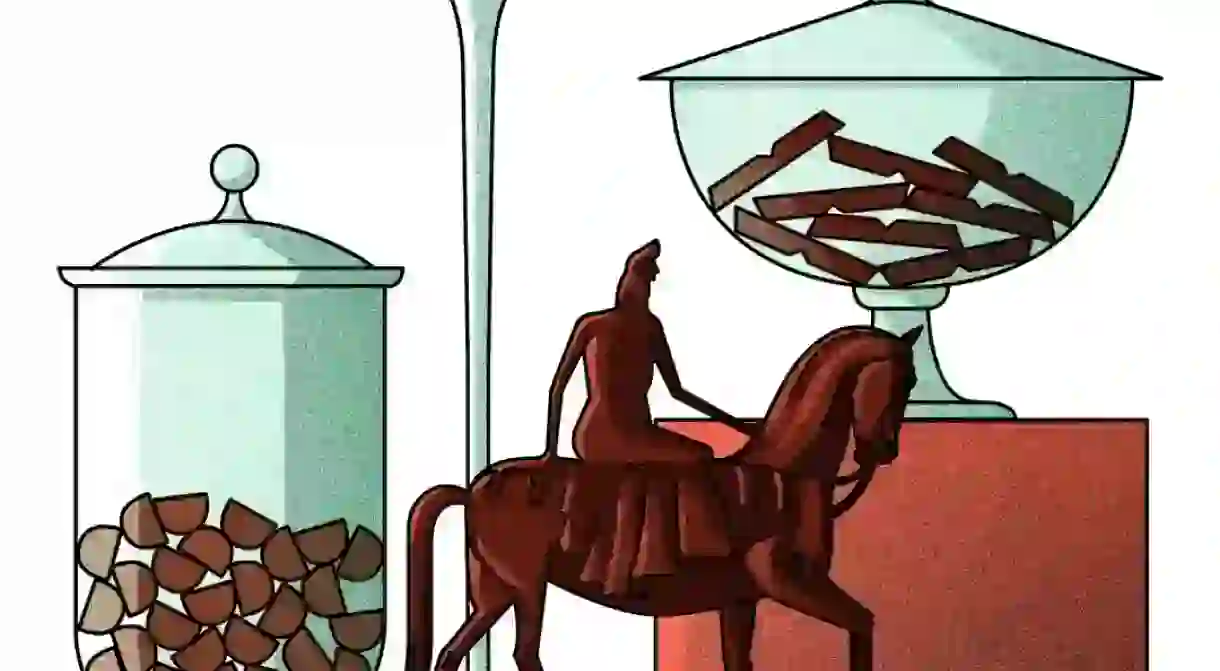The Truth Behind The Legend of Lady Godiva

Lady Godiva is a key figure in the history of Coventry. The 900-year-old story was first recorded in Latin by two monks at St Albans Abbey. It was assumed these monks had heard the story from travellers making their way to the capital. So what has made this tale transcend not just space, from the Midlands to London, but time, being part of culture for 900 years? It’s time to look at the truth behind the legend of Lady Godiva.
Did you know you can now travel with Culture Trip? Book now and join one of our premium small-group tours to discover the world like never before.
In the eleventh century, Lady Godiva reportedly rode a horse completely naked through the streets of Coventry on Market Day. According to legend, her husband, Leofric, demanded an oppressive tax from Coventry citizens. Lady Godiva, aiming to help the citizens, pleaded for him to stop. Leofric supposedly said, “You will have to ride naked through Coventry before I change my ways.”
Before beginning this quest to help Coventry, Godiva told everyone to stay in their homes to preserve her modesty. She then rode through the streets, her long hair draped so that it covered almost her whole body, allowing only her legs and eyes to remain visible. However, one man, now known as Peeping Tom, disobeyed her instructions and couldn’t help looking out at Godiva riding through Coventry on the horse. Upon doing so, the legend goes, he was instantly blinded.
Lady Godiva is a legitimate historical figure, born in 990 A.D. It is unknown when she died, although it was assumed to be between 1066 and 1086. The real Godiva was known for being generous to the church. However, despite this historical legitimacy (i.e., the existence of the town and Godiva herself), there is doubt on her ride through Coventry due to a lack of records about it. The story only first appeared approximately one hundred years after her death, and the monk, Roger of Wendover, who recorded it was known for stretching the truth in his writings.
The Peeping Tom character was added to the story in the sixteenth century and later became a common term for a voyeur.
The Lady Godiva Clock Tower in Coventry depicts both Lady Godiva on her horse and Peeping Tom. Donald Gibson aided City Apprentices in the making of the Godiva Clock Tower. The sculptor, Trevor Tenant, carved the figures from wood. The clock was not received well at first, with many finding it crude; it has however proven popular with tourists and children. On the hour, the right door of the clock opens, and Lady Godiva rides naked on her horse across the front of the clock before exiting through the left door. Meanwhile, the window above opens and reveals the face of Peeping Tom. The clock has been sculpted with detail, including a black eagle on the doors from which Godiva. This image on a yellow background is the symbol of Leofric, Earl of Mercia.
The clock was unfortunately broken in 1987 in the celebrations that followed Coventry’s FA Cup win. In the excitement, people climbed atop the Clock Tower, damaging the clock.
Further marks of Lady Godiva’s legendary ride through the streets live on in a statue — built by Sir Williain Reid Dick in 1949 — in the city centre. It was built as a morale booster, symbolic of Coventry’s regeneration, after the wartime bombings.
The legend also lives on in the name of the local annual music festival, the Coventry Godiva Festival, which celebrates its twentieth anniversary this year. According to legend, the story of Lady Godiva was told by monks in a procession through the streets. The first recorded Godiva Procession, originally named The Great Fair, was in 1678.
Lady Godiva has been the muse of many paintings. John Collier in 1897 painted her naked but covered by her long hair on a white horse covered in a red cloth. However, Edmund Blair Leighton’s depiction in his 1892 painting was very different, she is completely covered in a white dress, suggesting purity. Leighton’s depiction reflects her desire to preserve her modesty by asking the town not to look out their windows.
The Godiva legend has also spread far beyond Coventry in the name of the Godiva Chocolatier, a company founded in Brussels with now more than 450 stores worldwide. It also inspired a line in one of 1970/’80s band Queen’s most popular songs, ‘Don’t Stop Me Now’: ‘I’m a racing car, passing by like Lady Godiva’. The song reached platinum status in both the U.S. and U.K.
This article was written in association with The Boar, a student publication based at the University of Warwick.













